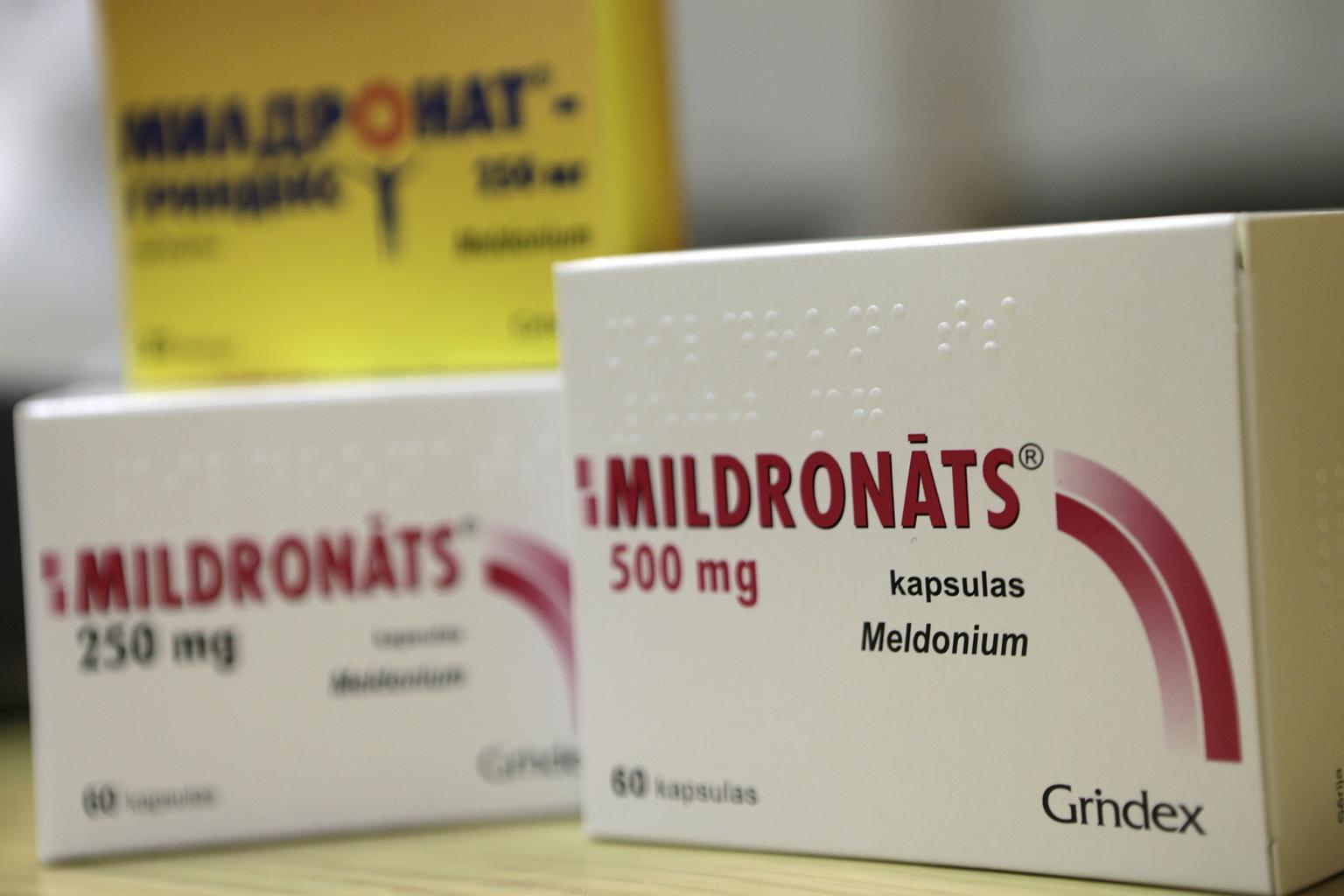Tennis: Meldonium can take months to leave body, says drug maker
Sign up now: Get ST's newsletters delivered to your inbox

Mildronate (Meldonium) medication is pictured in the pharmacy in Saulkrasti, Latvia, on March 9, 2016.
PHOTO: REUTERS
Follow topic:
LONDON (REUTERS) - The drug that has produced more than 100 positive sports doping tests since being outlawed on Jan 1 can take "several months" to completely leave the body, the manufacturer of meldonium told Reuters on Monday.
A number of athletes say they took the cardiac drug before it was banned by the World Anti-Doping Agency (Wada).
Latvian manufacturer Grindeks said meldonium has a half-life of between four and six hours but "its terminal elimination from the body may last for several months" depending on factors such as dose, duration of treatment, and sensitivity of testing methods.
Meldonium has been in the spotlight since Russia's former world No. 1 tennis player Maria Sharapova stunned the sporting world by announcing this month that she had failed a doping test for the drug after a loss to Serena Williams at this year's Australian Open.
At least 16 Russian sportsmen and women, including speed skating Olympic gold medallist Semion Elistratov, have been caught using meldonium since the ban came into effect, along with dozens of competitors from other countries.
While the comments by Grindeks would appear to offer one reason why there have been so many positive tests for meldonium, Wada said athletes were made aware that the substance would be added to the banned list last October.
"The date an athlete sample is collected is the date any subsequent anti-doping rule violation is asserted to have taken place," a Wada spokesman said on Monday. "At any hearing that follows, the onus is then on the athlete to explain how the substance was in his or her body.
"It is important to note that every year, all stakeholders are advised on any changes to the Prohibited List three months before it enters into force which provides sufficient time to be educated on any changes to the list."
Sharapova, who is provisionally banned while the International Tennis Federation (ITF) investigates, said she had been taking the drug legally for 10 years for health reasons and had not realised it had been added to Wada's banned list.
Russia's four-time world champion swimmer Yulia Efimova also tested positive for meldonium, but said in an interview with Russia 24 on Monday she had never been informed it was banned.
"The last time I took meldonium was when it was still legal. I took it for medical reasons and read the instructions carefully," she said. "Experts are now looking at how traces of meldonium could be in my sample months after I stopped taking it."
Four Russian track and field athletes have also tested positive, adding further scrutiny to a nation currently banned from international track and field competitions after last year's disclosures of widespread cheating and corruption.
Meldonium, marketed as Mildronate and a common medicine across eastern Europe, was developed to treat heart conditions such as angina. It was also used extensively for three decades to toughen up Soviet troops in action at high altitude.
Wada placed it on its watch list in 2015 after mounting evidence of its performance-enhancing benefit and widespread use in various sports.

